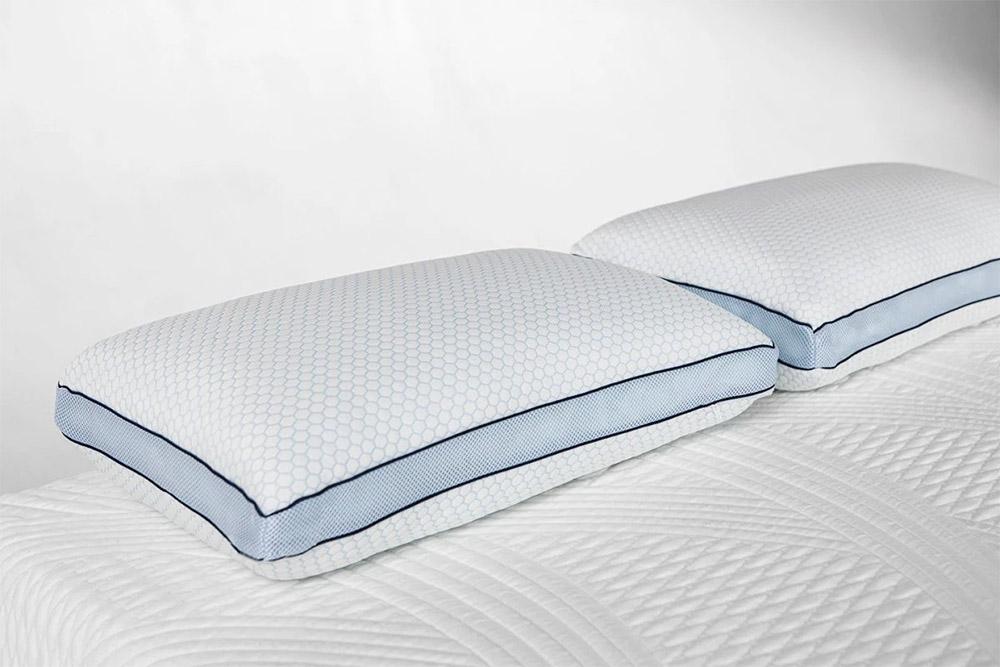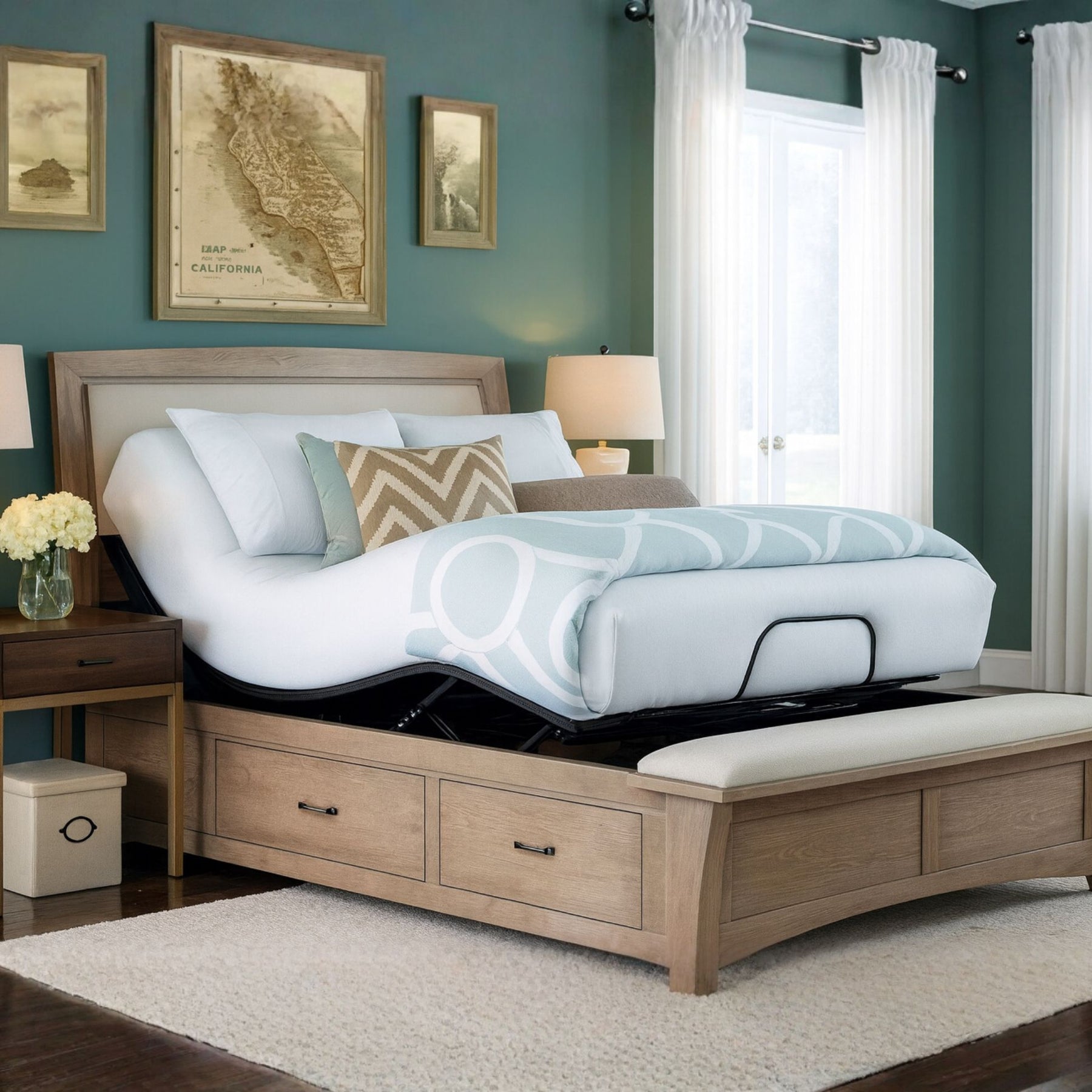According to doctors and sleep experts, an adult requires at least 8 hours of sleep a day, with Sleep Number alternative beds and Tempurpedic alternatives being an excellent choice. Unfortunately, a vast majority of adults don't manage to enjoy uninterrupted sleep for eight hours, putting them at an increased risk of various health issues as well as other sleep disorders..
Apart from stress, pain, uncomfortable bed and mattress, the amount of light in the room also plays a huge role in determining the quality of your sleep. Multiple studies have revealed that one solution to achieving quality interrupted sleep is keeping the room dark. For years we have asked, Is it better to sleep in the dark? And now, we know the answer to that question is Yes!
In this article, we will discuss the benefits of sleeping in a dark room.
It helps you fall asleep easier
One of the benefits of sleeping in a dark room is that it helps you fall asleep easier. According to sleep experts, darkness helps to stimulate the production of melatonin, a hormone that helps you fall asleep quickly. It also helps to keep you asleep until you complete all sleeping cycles, thus reducing the risk of sleep disorders.
Additionally, darkness also promotes relaxation, which helps you fall asleep quickly. The brain is very sensitive and can detect even the slightest amount of light and stop the production of melatonin, which plays a huge role in helping you get quality sleep. Therefore, next time you go to bed, ensure to minimize light exposure by switching off all lights to facilitate falling asleep more easily.
It helps to enhance your health
This may come as a surprise to many but it is true. Sleeping in complete darkness can help to enhance your overall health and well-being. Several scientific studies have shown that sleeping in light can increase your body weight by up to 50%.
According to experts light could alter your metabolic process by slowing it down. This means that your body will not be able to convert fat into energy. This could lead to weight gain. On the other hand, sleeping in a dark room promotes fast metabolism, meaning your body will burn more calories, thus allowing you to maintain a healthy weight.
It lowers your chances of getting diabetes
A study conducted at Northwestern University Feinberg school of medicine and published in a scientific journal revealed that sleeping in darkness can help reduce your chances of getting type 2 diabetes. The study found out that sleeping in light could lead to insulin resistance, thus increasing your chances of getting diabetes. The study recommended that people should sleep in a dark room to lower their chances of getting this deadly disease.
It enhances your mental focus
Sleeping in a dark room helps to improve your mental focus. It enables you to get quality uninterrupted sleep for at least 6 hours, thus improving your mental focus and alertness during the day. According to sleep experts, each sleep cycle takes about 90 minutes. This means that you need at least six hours to complete all sleep cycles. Sleeping in the dark will ensure that you complete all sleep cycles, thus improving your mental focus. Getting quality sleep also helps to reduce your chances of suffering from mental health diseases such as depression, anxiety, and stress.
It helps to regulate melatonin production
Melatonin is one of the most crucial hormones in the human body. This hormone is produced by the pineal gland at night and serves as a time cue to the body's circadian rhythm or biological clock and also helps to promote quality sleep. A proper level of melatonin is required to get high-quality sleep at night. Studies have shown that melatonin is best produced while sleeping in the dark.
If you sleep while exposed to light, including dim light, you may delay or reduce the production of melatonin, which in turn may disrupt your sleep-wake cycle and impact your sleep quality. In addition to encouraging healthy sleep, melatonin also helps to regulate other hormones in the body, including those that affect a woman's menstrual cycle. Studies have also shown that normal production of melatonin also helps to reduce the risk of obesity, diabetes, and sarcopenia.
It offers relief to your eyes
Besides helping you get a good night's sleep, sleeping in the dark also gives your eyes much-needed relief. Darkness is important to eyes as it helps to protect them and also ensure that they rest properly. That is why children who sleep in a dark room are less likely to suffer from eye conditions such as myopia.
It protects your skin from aging
Do you want your skin to look younger even as you age? If yes, then you need to sleep in a dark room. Studies have shown that sleeping in the dark helps to enhance cellular regeneration which helps to keep your skin younger. When your body is in a complete rest state, cellular regeneration is enhanced, which, in turn, helps to slow down the aging process.
Tips on how to make your room dark at night
-
Install blackout blinds or curtains
One of the best ways to keep your room dark is by investing in high-quality blackout blinds or curtains. Blinds and curtains are not created equally, and some keep light out better than others. Invest in a high-quality blinds or blackout curtains that will keep light out of your room. -
Wear an eye mask
Another brilliant way to ensure that you are not disrupted by light is by investing in an eye mask. A high-quality sleep mask will block out all light, thus triggering the production of melatonin which will help you enjoy high-quality uninterrupted sleep. -
Remove anything that gives off light
To ensure that your room remains dark the entire night, you need to remove anything in the bedroom that gives off artificial light, including blue light sources such as a digital clock or night light. Any form of light in the room can disrupt you, thus affecting the quality of your sleep.
Final verdict
From the above article, it is evident that keeping your room dark while sleeping can help you get high-quality uninterrupted sleep. Besides getting quality sleep, sleeping in a dark room also help to enhance your health by reducing the risk of getting diseases such as diabetes, myopia, muscle loss, depression, and anxiety.
There are many things that you can do to make your room dark including investing in high-quality black-out blinds or curtains, removing anything that gives off light, or wearing an eye mask.






















